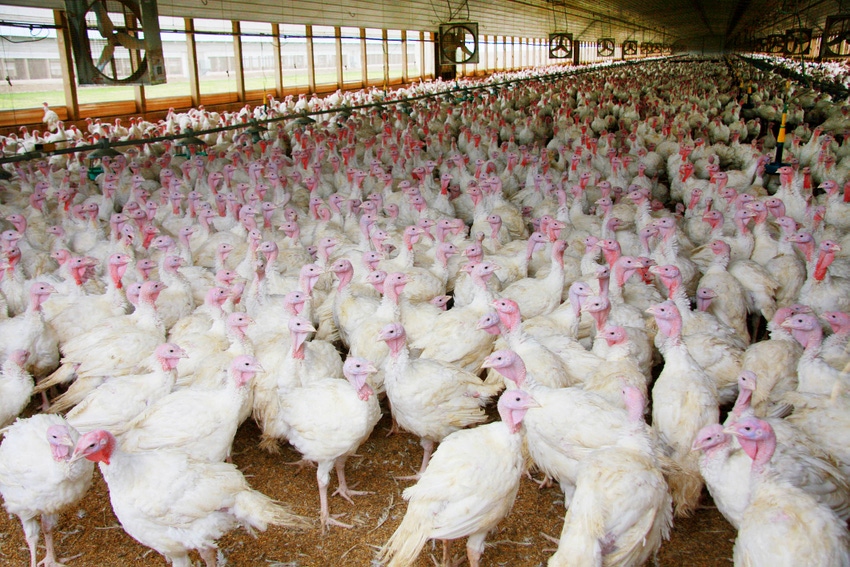Strain is not same virus that caused 2015 outbreak and does not pose a risk to public health or food safety.
November 2, 2018

During a routine test, the Minnesota Board of Animal Health (MBAH) identified H5N2 low-pathogenic avian influenza in a Stearns County, Minn., turkey flock, according to a Nov. 1 announcement.
All flocks are tested for influenza before they are moved to market, and this finding was part of the everyday process of ensuring a safe food supply and protecting Minnesota’s poultry industry from the spread of influenza, MBAH said. The flock of 13-week-old hens has been quarantined and will be tested and monitored until the board determines the flock is virus negative and the turkeys can be controlled marketed.
This is not the same strain of virus that affected Minnesota and other states in 2015, and thus, MBAH said its response will be different. This strain of influenza in poultry does not pose a public health risk or food safety concern.
“The board conducts routine influenza surveillance of poultry flocks in Minnesota, and this early detection is an example of how our system is designed to monitor for disease and respond quickly,” said Dr. Dale Lauer, director of the Minnesota Poultry Testing Laboratory and assistant director with MBAH. “Much like the recent case in Kandiyohi County, [Minn.], the board, in cooperation with Minnesota’s poultry industry, is going to increase surveillance at poultry farms within 10 km of this site and any other sites linked with common equipment or personnel connections. This is part of the response to look for any additional cases, wherever they may be.”
Biosecurity is the key defense for commercial poultry flocks and is part of the reason why cases have not happened in more flocks, MBAH said. Biosecurity is the way flocks are managed and the various practices put in place to isolate flocks from outside sources of infection. Biosecurity is very important for protecting commercial poultry flocks and to prevent the spread of any disease. Backyard flock owners should practice strict biosecurity measures, including preventing birds from exposure to and/or commingling with wild birds and other types of poultry.
MBAH has a flyer on general biosecurity steps for producers available at this link.
For more than 40 years, commercial poultry flocks in Minnesota have been routinely tested for avian influenza prior to marketing. Avian influenza is not a food safety issue. The turkeys in this flock will be allowed to move to market with approval from the board once they have recovered from this infection and test negative for the virus.
Turkey producers and farmers who have questions should contact the Minnesota Poultry Testing Laboratory at (320) 231-5170 or [email protected].
You May Also Like



